- Home›
- Healthy Living›
- Which Is Better Source Of Protein- Paneer Or Soy?
Which Is Better Source Of Protein- Paneer Or Soy?
By: Priyanka Maheshwari Sat, 03 Aug 2024 4:58:53
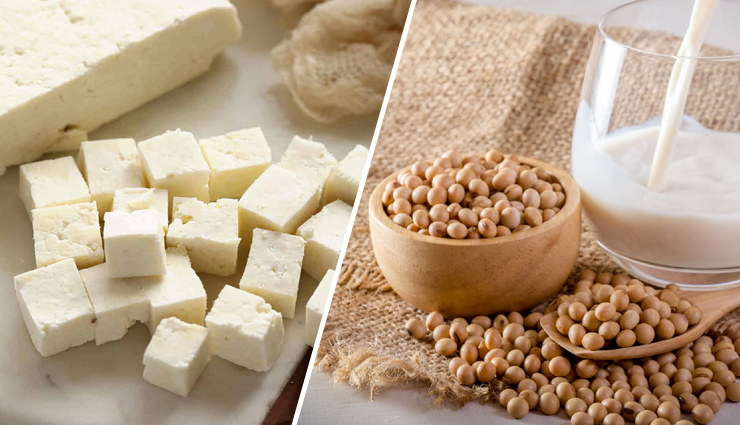
Protein is a crucial macronutrient that plays a key role in building and repairing tissues, making enzymes and hormones, and supporting overall bodily functions. It is composed of amino acids, some of which are essential and must be obtained through diet. There are various sources of protein, broadly categorized into animal-based and plant-based sources:
Animal-Based Protein Sources:
- Meat: Includes beef, pork, and lamb. These are complete proteins, meaning they contain all essential amino acids.
- Poultry: Chicken and turkey are also complete proteins and are often considered lean options.
- Fish: Fish such as salmon, tuna, and cod are high in protein and often rich in healthy fats like omega-3 fatty acids.
- Dairy: Milk, cheese, and yogurt provide high-quality protein along with other nutrients like calcium.
- Eggs: Eggs are an excellent source of complete protein and are versatile in cooking.
Plant-Based Protein Sources:
- Legumes: Beans, lentils, and chickpeas are rich in protein and fiber. They may need to be combined with other plant proteins to provide all essential amino acids.
- Nuts and Seeds: Almonds, chia seeds, and hemp seeds offer protein along with healthy fats and other nutrients.
- Soy Products: Tofu, tempeh, and edamame are high in protein and are complete sources of amino acids.
- Whole Grains: Foods like quinoa, farro, and bulgur provide protein and additional nutrients like fiber and vitamins.
- Seitan: Made from gluten, seitan is a high-protein meat substitute popular in many plant-based diets.
Both paneer and soy are excellent sources of protein, but they have different nutritional profiles.
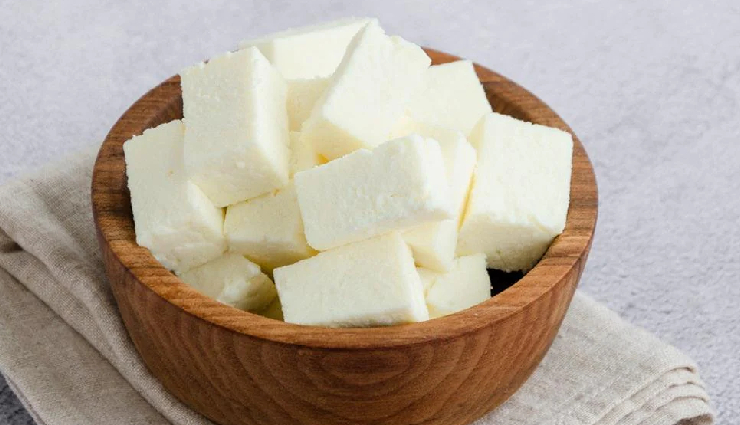
Paneer:
- Protein Content: Paneer is a good source of protein, providing about 18 grams of protein per 100 grams.
- Other Nutrients: It’s also rich in calcium and contains healthy fats.
- Considerations: It’s a dairy product, so it’s not suitable for those who are lactose intolerant or follow a vegan diet.
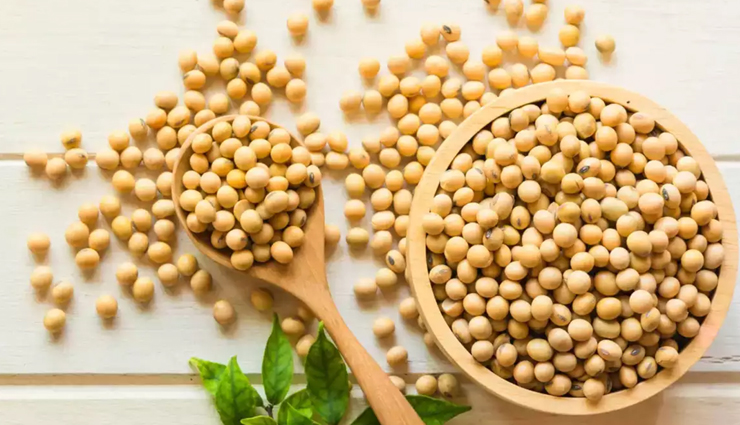
Soy:
- Protein Content: Soybeans provide about 36 grams of protein per 100 grams, making them a very high-protein plant-based food.
- Other Nutrients: Soy is also a good source of essential amino acids, fiber, and various vitamins and minerals. Soy products like tofu and tempeh are commonly used as meat substitutes.
- Considerations: Soy is a plant-based protein, so it's suitable for vegans and those with lactose intolerance.
Health Benefits
Paneer
Paneer, a type of Indian cheese made from curdled milk, offers several health benefits:
# Rich in Protein:
Benefit: High in protein, which is essential for muscle building, repair, and overall body function.
Details: Provides about 18 grams of protein per 100 grams, making it a good option for vegetarians looking to increase their protein intake.
# Good Source of Calcium:
Benefit: Contains significant amounts of calcium, which is crucial for bone health.
Details: Supports bone strength and helps in the prevention of osteoporosis.
# Contains Healthy Fats:
Benefit: Provides healthy fats that are essential for various bodily functions.
Details: Includes both saturated and monounsaturated fats, which can be part of a balanced diet.
# Promotes Digestive Health:
Benefit: The presence of beneficial bacteria in paneer can aid in digestion.
Details: Acts as a probiotic that can support gut health.
# Supports Muscle Mass and Recovery:
Benefit: The high protein content helps in muscle repair and growth.
Details: Beneficial for those engaged in regular physical activity or strength training.
# Contains Vitamins and Minerals:
Benefit: Provides essential vitamins and minerals, including vitamin B12, phosphorus, and magnesium.
Details: These nutrients support various bodily functions, including energy production and nervous system health.
# May Help in Weight Management:
Benefit: High protein content can aid in satiety and help control appetite.
Details: Can be part of a diet aimed at maintaining or reducing weight by reducing overall calorie intake.
# Versatile in Cooking:
Benefit: Can be incorporated into a variety of dishes, making it easy to include in a balanced diet.
Details: Can be used in salads, curries, snacks, and more, offering both taste and nutrition.
Soy
Soy is a versatile and nutrient-dense legume with numerous health benefits. Here are some key advantages:
# High in Protein:
Benefit: Soy is a complete protein source, meaning it provides all essential amino acids needed by the body.
Details: Contains about 36 grams of protein per 100 grams of soybeans, making it an excellent option for vegetarians and vegans.
# Rich in Healthy Fats:
Benefit: Provides beneficial fats, including polyunsaturated fats and omega-3 fatty acids.
Details: Supports heart health and may help reduce inflammation.
# Supports Heart Health:
Benefit: Consumption of soy protein can help lower LDL (bad) cholesterol levels.
Details: Soy has been associated with a reduced risk of cardiovascular diseases due to its ability to improve lipid profiles and blood pressure.
# Contains Isoflavones:
Benefit: Isoflavones are plant compounds with antioxidant properties.
Details: They can help reduce oxidative stress and may have potential benefits in reducing the risk of certain cancers, particularly breast cancer.
# Aids in Bone Health:
Benefit: Soy contains calcium and other nutrients that support bone health.
Details: Regular soy consumption can help improve bone density and reduce the risk of osteoporosis.
# May Help Manage Menopause Symptoms:
Benefit: Isoflavones in soy can mimic estrogen in the body.
Details: This can help alleviate some symptoms of menopause, such as hot flashes and mood swings.
# Supports Digestive Health:
Benefit: Soy is a good source of dietary fiber.
Details: Fiber promotes healthy digestion, prevents constipation, and supports a healthy gut microbiome.
# Helps in Weight Management:
Benefit: High in protein and low in saturated fats.
Details: Soy can help control appetite and support weight management by promoting satiety and reducing overall calorie intake.
# May Improve Skin Health:
Benefit: Antioxidants and vitamins in soy can benefit skin health.
Details: Soy may help improve skin texture and reduce signs of aging.
Nutritional Value
Here's a comparison of the nutritional values of paneer and soy:
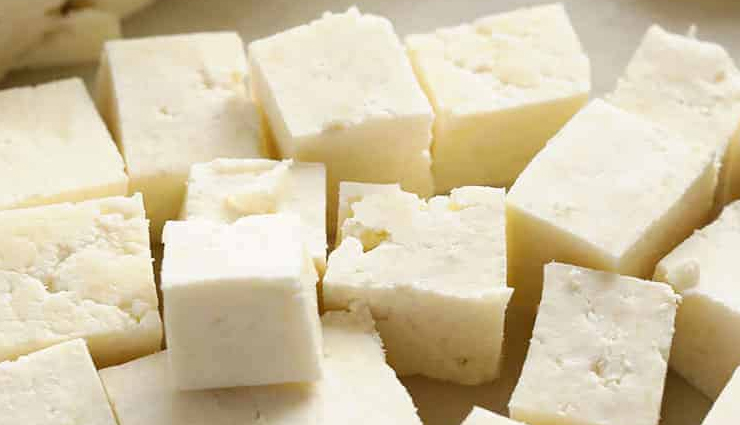
Paneer (per 100 grams):
Calories: Approximately 265 kcal
Protein: About 18 grams
Fat: About 20 grams
Saturated Fat: Approximately 12 grams
Carbohydrates: About 1.2 grams
Calcium: Approximately 208 mg
Vitamin B12: Approximately 0.8 µg
Phosphorus: About 700 mg
Magnesium: Approximately 24 mg
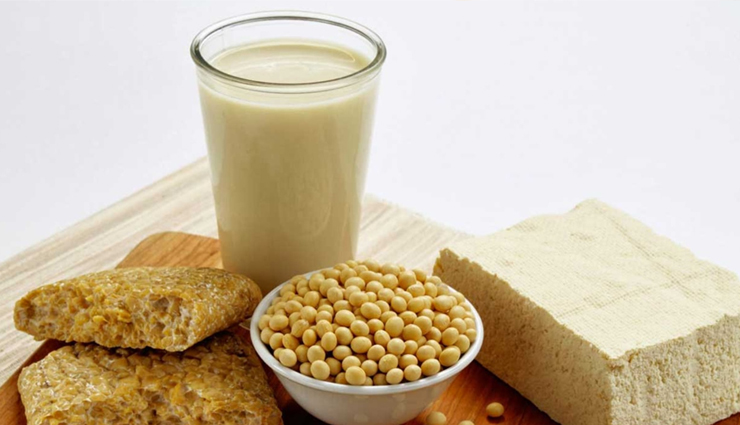
Soy (per 100 grams, cooked soybeans):
Calories: Approximately 173 kcal
Protein: About 16.6 grams
Fat: About 9 grams
Saturated Fat: Approximately 1.3 grams
Carbohydrates: About 9 grams
Fiber: About 6 grams
Calcium: Approximately 277 mg
Vitamin B12: None (soybeans are plant-based and don’t contain B12, but fortified soy products can)
Phosphorus: About 280 mg
Magnesium: Approximately 280 mg
Key Differences:
* Protein: Both are excellent sources of protein, with paneer slightly higher in protein content than soybeans.
* Fat: Paneer contains more fat overall, including saturated fat, compared to soybeans.
* Calcium: Soybeans have a slightly higher calcium content, but both are good sources.
* Fiber: Soybeans are a better source of dietary fiber compared to paneer.
* Vitamin B12: Paneer contains Vitamin B12, which is important for nerve function and blood formation. Soybeans do not naturally contain Vitamin B12, but fortified soy products can provide it.
Which is Better?
- For Vegetarians and Vegans: Soy is a better option as it is plant-based and provides complete protein. It’s also lower in saturated fat and higher in fiber.
- For Those with Lactose Intolerance: Soy is preferable since paneer is a dairy product.
- For Bone Health: Both provide calcium, but paneer also includes Vitamin B12, which may be beneficial.
- For Weight Management: Soy may be preferable due to its lower fat content and higher fiber, which can aid in satiety.
Ultimately, both paneer and soy can be part of a healthy diet. It may be beneficial to include a variety of protein sources to meet your nutritional needs.





